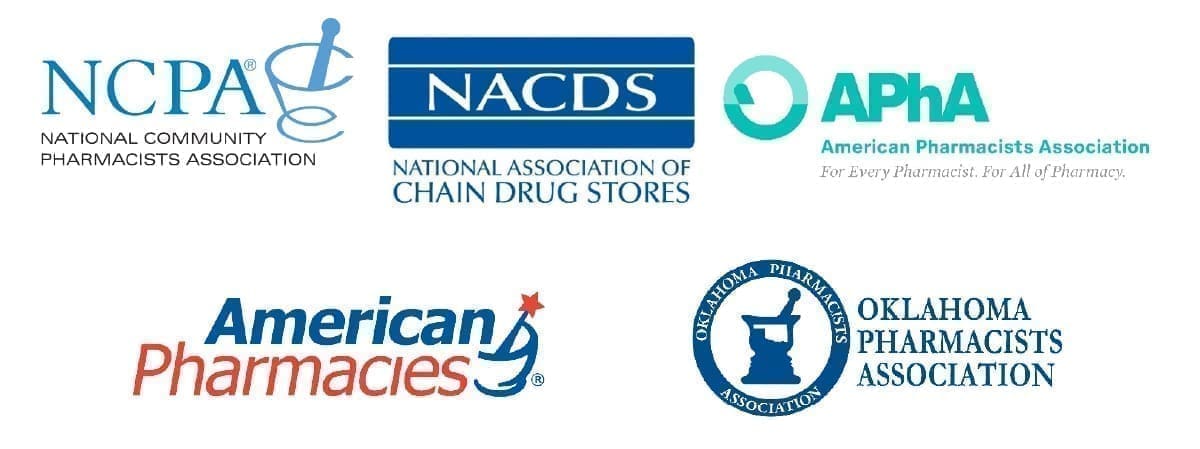
|
To: NACDS Chain Members
|
|
From: Steven C. Anderson, FASAE, CAE, IOM President & Chief Executive Officer
|
|
Date: August 17, 2023
|
In an unfortunate – and arguably errant – legal development, the United States Tenth Circuit Court of Appeals on Tuesday issued an unfavorable decision in the Pharmaceutical Care Management Association (PCMA) v. Mulreadyappeal. The decision overturns Oklahoma’s effort to regulate pharmaceutical benefit managers (PBMs) – and likely would have implications for other states as well.
NACDS, the National Community Pharmacists Association, the American Pharmacists Association, the Oklahoma Pharmacists Association, and American Pharmacies issued a joint media statement critical of the decision, emphasizing that the Tenth Circuit is in direct conflict with other appellate courts.
Previously, NACDS and these allied associations filed an amicus brief in support of Oklahoma’s PBM law. We will continue to actively assess the state’s future plan in the courts and consider opportunities to further back the defense of the Oklahoma law. Further, as part of NACDS’ all-levels and all-branches approach to confronting pharmaceutical benefit manipulation, NACDS will determine any calibration that is necessary in our proactive advocacy. NACDS remains staunchly focused on confronting PBM tactics that harm patients, pharmacies, employers, employees, taxpayers, communities, and the nation.
Background and Ruling
Legal dynamics surrounding states’ PBM reform lawmaking have been swirling in recent years. The U.S. Supreme Court’s December 2020 decision in Rutledge v. PCMA – upholding an Arkansas law – opened the door to important new state laws confronting PBM tactics. Then, in PCMA v. Wehbi, the Eighth Circuit of the U.S. Court of Appeals in November 2021 upheld a North Dakota law, reinforcing and strengthening the U.S. Supreme Court’s ruling in Rutledge v. PCMA. NACDS and allies engaged in each of these cases.
This week’s decision by the Tenth Circuit conflicts with the Eighth Circuit’s reasoning in Wehbi. Significantly, the Tenth Circuit rejected a distinction between regulating PBMs and plans. It held that the four provisions of the Oklahoma PBM law challenged by PCMA are preempted by the federal Employee Retirement Income Security Act (ERISA). The Court further held that the state had waived any argument under the ERISA insurance regulation savings clause, under which states may regulate the terms and conditions of health insurance.
Regarding Medicare Part D preemption, the Tenth Circuit embraced the broadest possible reading of Part D’s preemption clause, concluding it preempts any state law related to a Part D plan (except those regulating plan licensing or solvency). Here, too, the Tenth Circuit split from the Eighth Circuit’s decision in Wehbi. Consequently, the Tenth Circuit held that the any-willing-provider provision of Oklahoma’s law was preempted as applied to PBMs serving Part D plans.
Looking Ahead
In response to the Tenth Circuit’s decision, the state of Oklahoma may either seek a re-hearing with the full bench of the Tenth Circuit (i.e., “hearing en banc”) or file a petition with the U.S. Supreme Court for review.
Beyond Oklahoma, the states most directly impacted by this decision are the other states in the Tenth Circuit (Oklahoma, Kansas, New Mexico, Colorado, Wyoming, and Utah, plus portions of Montana and Idaho). Also, we can expect PCMA to rely on this Mulready decision to try to get other courts to adopt its ERISA preemption reasoning beyond the Tenth Circuit, where the Eighth Circuit’s Wehbi decision does not already control.
One thing that is not impacted by this decision is the original Supreme Court decision in Rutledge, which preserves state efforts to regulate PBMs as related to their rates. That ruling remains the law and is unaffected by the Tenth Circuit’s Mulready ruling.
We will keep you updated on related developments. If you have any questions, please do not hesitate to contact Mary Ellen Kleiman, NACDS’ vice president, legal affairs/senior counsel, or Lauren Lyles-Stolz, senior director, reimbursement, innovation and advocacy.